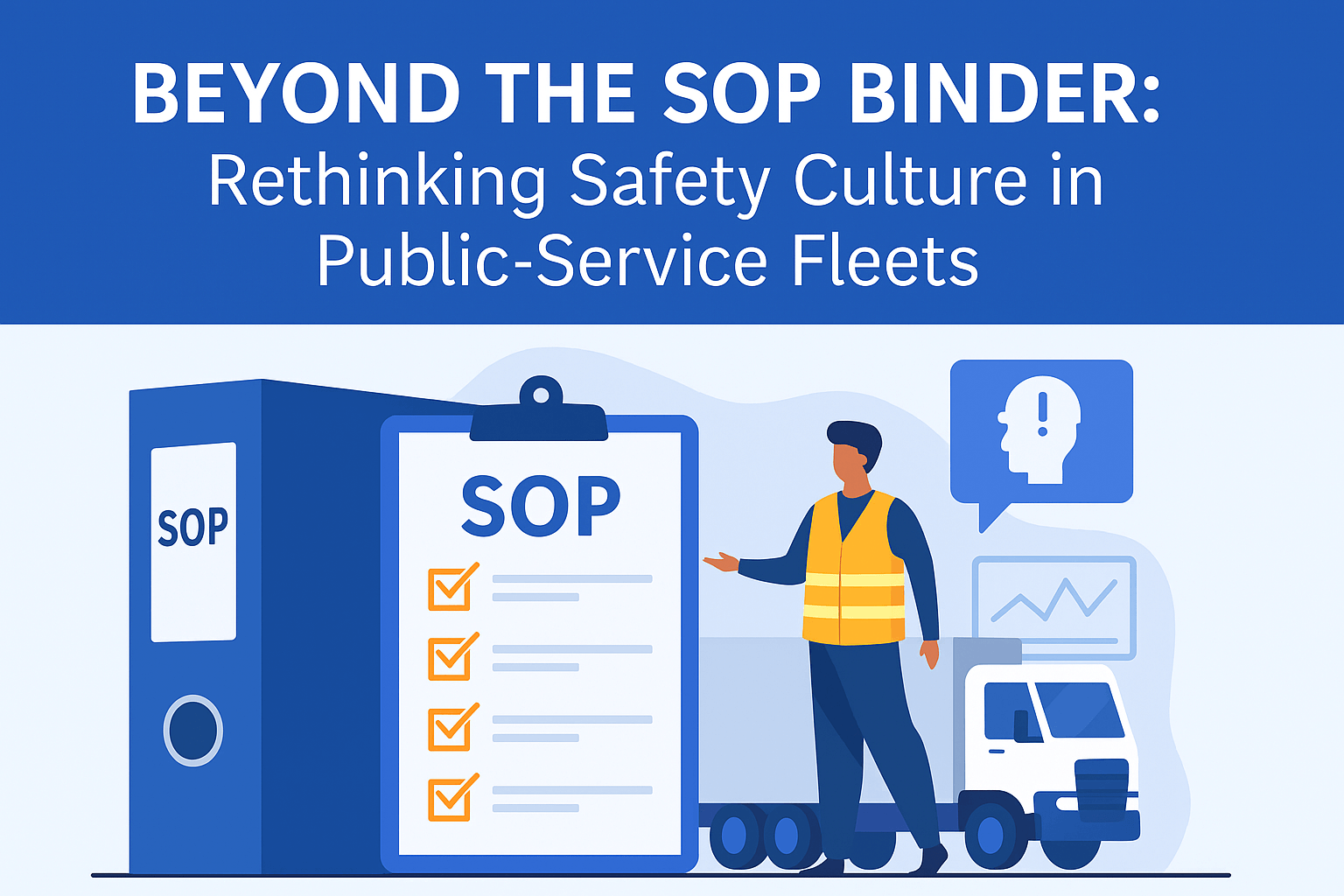
A Non CDL Class C License allows you to drive certain larger vehicles without needing a commercial driver’s license (CDL). So, what is a non cdl class c license? This type of license is ideal for those who don’t plan on driving heavy commercial vehicles but need more capacity than a standard driver’s license offers.
Table Of Contents
- Non CDL Class C License Overview
- Vehicle Types Permitted with a Non CDL Class C License
- Eligibility Requirements for a Non CDL Class C License
- How to Obtain a Non CDL Class C License
- Driving Privileges and Restrictions
- Benefits of a Non CDL Class C License
- Non CDL Class C License vs. Commercial Driver’s License
- Additional Endorsements for Non CDL Class C License Holders
- Common Misconceptions About Non CDL Class C Licenses
- Summary
- Frequently Asked Questions
Key Takeaways
- A Non CDL Class C License allows you to drive larger vehicles up to 26,000 pounds without the extensive training needed for a full CDL.
- To obtain this license, you must meet eligibility requirements including residency proof, medical exams, and a clean driving record.
- While it offers more flexibility than a standard license, there are restrictions such as not driving for compensation and limitations on towing capacities.
Non CDL Class C License Overview

A Non CDL Class C License is designed for individuals who need to operate larger vehicles without undergoing the extensive training required for a commercial driver’s license (CDL). This makes it an ideal option for those who don’t plan on driving heavy commercial vehicles but still need more capacity than a standard driver’s license allows.
One of the main advantages of a Non CDL Class C License is the broader range of vehicles it permits you to operate. Unlike a standard driver’s license, this license allows you to drive vehicles that are slightly heavier and more complex, such as 2-axle vehicles with a Gross Vehicle Weight Rating (GVWR) of up to 26,000 pounds.
It’s important to note that while this license offers more flexibility than a standard driver’s license, it does not equate to a full commercial license. The vehicles you can drive are still limited in terms of weight and commercial usage, making it a specialized yet accessible option for many drivers.
Vehicle Types Permitted with a Non CDL Class C License
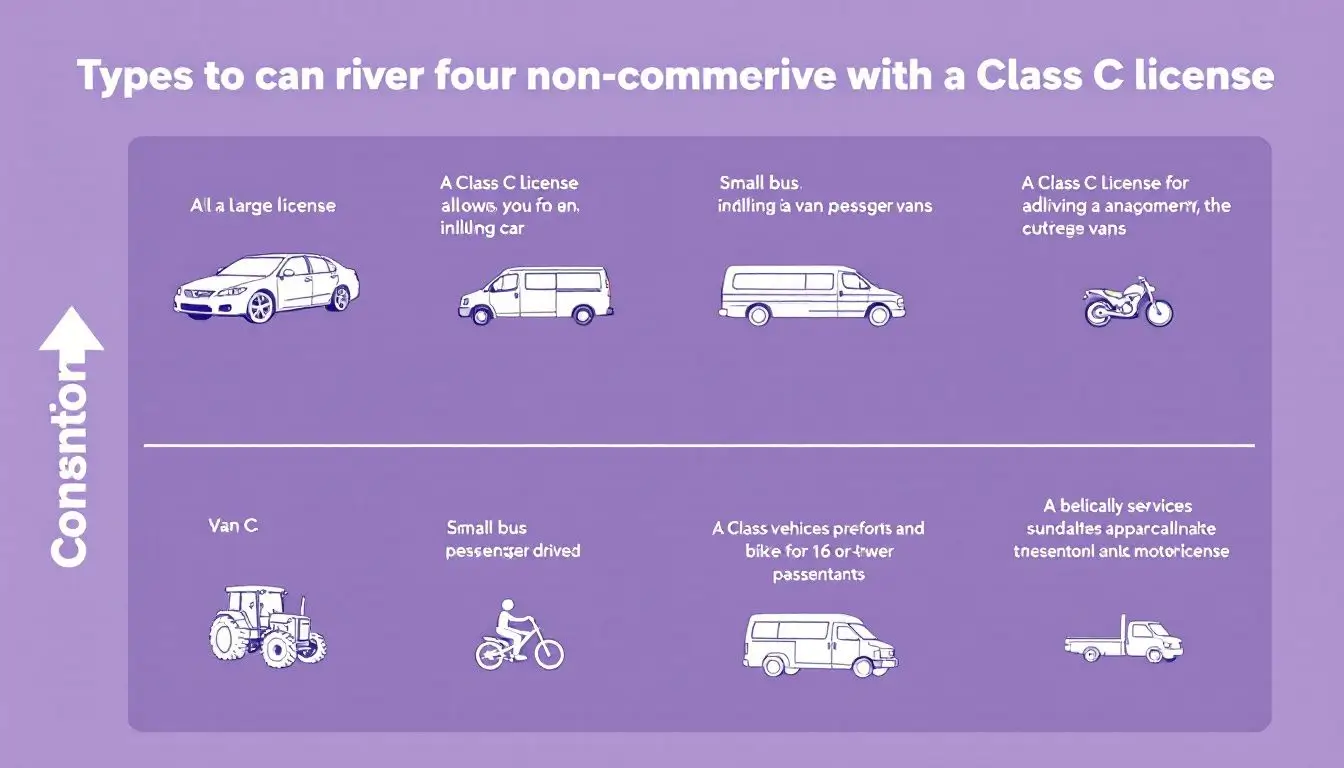
With a Non CDL Class C License, you can drive vans carrying a variety of vehicles that are off-limits to those with just a standard driver’s license. For example, you can operate vans designed to carry fewer than 15 passengers, making it a great option for small group transportation.
This license also permits the operation of recreational vehicles (RVs) and housecars up to 40 feet in length, which is ideal for those who enjoy road trips and require a larger vehicle for their lifestyle. You can also tow a trailer coach that doesn’t exceed 9,000 pounds in gross weight, or a fifth-wheel travel trailer under 10,000 pounds, as long as it is not for compensation.
However, some common misconceptions need to be addressed. Although a Non CDL Class C License allows for driving larger vehicles, it doesn’t permit the operation of all types of commercial vehicles. You’re still restricted from driving big rigs or other heavy commercial trucks without a proper CDL.
Eligibility Requirements for a Non CDL Class C License
Before you can obtain a Non CDL Class C License, you need to meet several eligibility criteria. First and foremost, you must provide proof of residency and identity, such as a social security card. These documents verify that you are legally permitted to drive in the state and obtain driver’s licenses.
Physical and vision examinations are mandatory to confirm you are medically fit to operate a vehicle safely, ensuring you do not pose a risk to yourself or others.
A background check is required to assess your driving history, including a verified driving record from any state where you held a driver’s license within the past three years, ensuring you have a clean record.
How to Obtain a Non CDL Class C License
Obtaining a Non CDL Class C License involves several steps, starting with passing a written knowledge assessment on driving laws and vehicle operation. Preparation for this test typically includes studying the CDL manual specific to your state.
You must then undergo a medical examination and present a Medical Examiner’s Certificate confirming you are fit to drive. This ensures that all drivers meet the health standards required for safe vehicle operation.
Finally, passing a road test to demonstrate your driving skills is required. After successfully completing the test, you’ll need to pay a fee to officially receive your Non CDL Class C License. The entire process, from studying to testing, is designed to ensure that you are fully prepared to drive safely and responsibly.
Driving Privileges and Restrictions
A Non CDL Class C License grants you certain driving privileges, but it also comes with specific restrictions. For instance, to qualify for this license, you must be at least 18 years old for intrastate travel and 21 for interstate travel. This age requirement ensures that drivers have enough experience and maturity to handle larger vehicles.
A significant restriction is that Non CDL Class C License holders typically cannot drive for compensation unless they have a specific endorsement. Additionally, you cannot tow vehicles that exceed the weight limits set by the license. These restrictions are in place to ensure safety and compliance with state regulations.
An annual review of your driving record is required to maintain your license. This review focuses on any traffic violations that may disqualify you from holding the license. Despite these restrictions, the license permits you to operate a wide range of vehicles, including passenger vans and RVs.
Benefits of a Non CDL Class C License
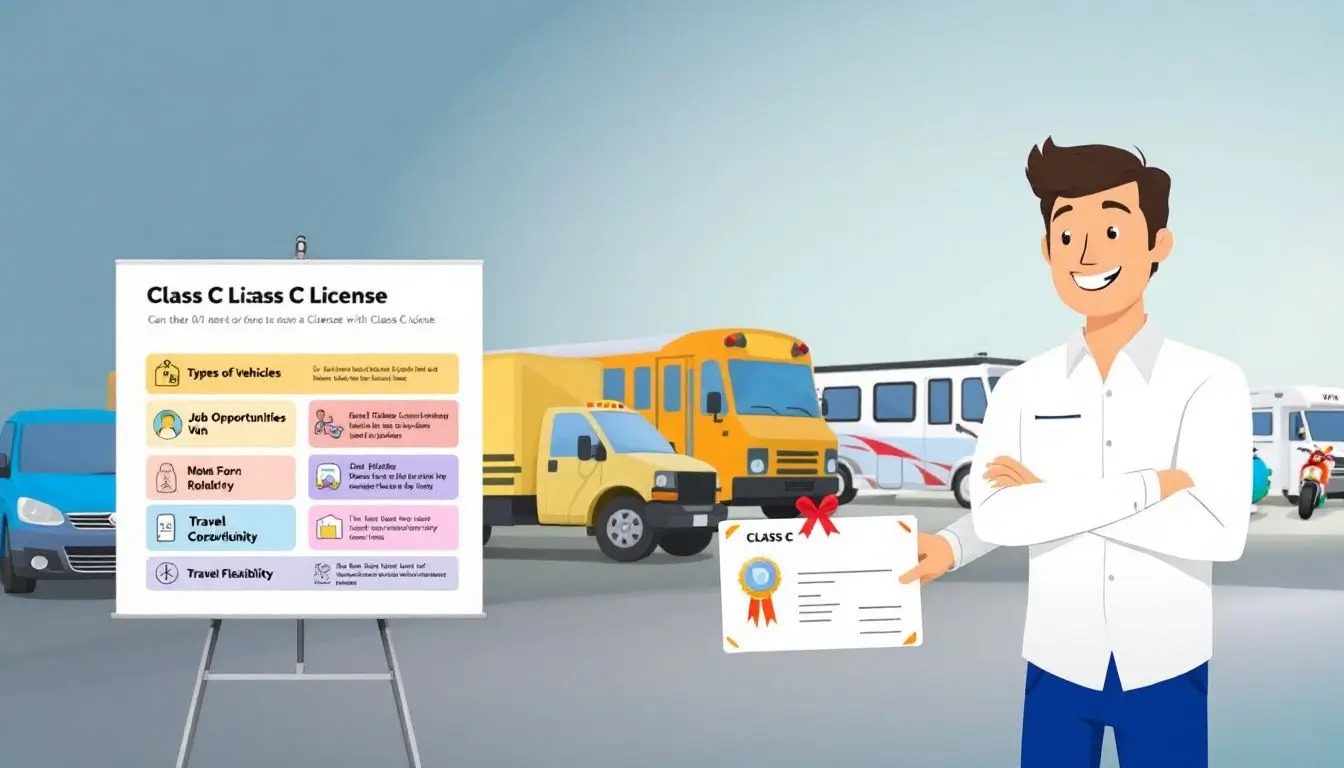
A primary benefit of a Non CDL Class C License is the simplified process of obtaining it compared to a full commercial driver’s license. This makes it an attractive option for individuals needing more flexibility than a standard driver’s license offers.
This license is particularly suitable for personal and small business use. Whether running a small business that requires transporting goods or needing a larger vehicle for personal travel, the Non CDL Class C License offers the necessary driving privileges without the extensive requirements of a CDL. Additionally, obtaining a non commercial class b license can provide further options for those looking to expand their vehicle capabilities.
This license also permits certain commercial activities, such as rideshare driving, without needing a full CDL. This flexibility can open additional income opportunities without requiring more rigorous training and testing.
Non CDL Class C License vs. Commercial Driver’s License
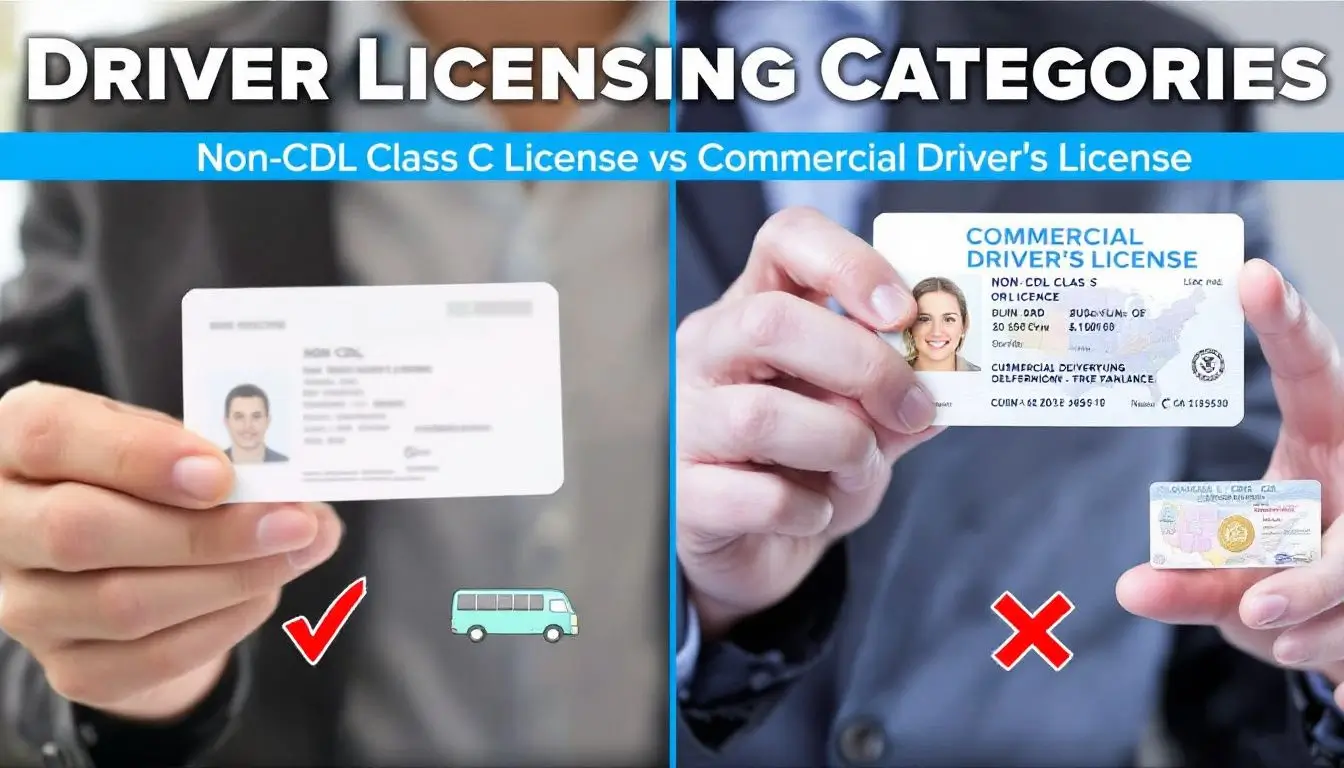
When comparing a Non CDL Class C License to a Commercial Driver’s License (CDL), several key differences stand out. Obtaining a Non CDL Class C License typically involves fewer tests and less rigorous training compared to a CDL. This makes it a more accessible option for many drivers.
The cost of obtaining a CDL is also significantly higher than that of a Non CDL Class C License. While a CDL can incur substantial fees, the Non CDL Class C License typically costs between $10 and $89. This cost difference can be a deciding factor for those considering which license to pursue.
However, a CDL can lead to increased job opportunities and potentially higher pay. Endorsements on a CDL can expand the types of vehicles you can operate, offering more flexibility and career options in the commercial driving industry.
Additional Endorsements for Non CDL Class C License Holders
Non CDL Class C License holders have the option to earn additional endorsements that enhance their driving capabilities, including a commercial drivers license and a non cdl license. These endorsements can include certifications for transporting passengers, hazardous materials, or operating tank vehicles.
Obtaining these endorsements typically involves passing written tests and may require specific background checks, depending on the type of endorsement. Safety training is also often required, particularly for endorsements involving hazardous materials or passenger transport. These additional qualifications can provide more flexibility and opportunities for Non CDL Class C License holders.
Common Misconceptions About Non CDL Class C Licenses
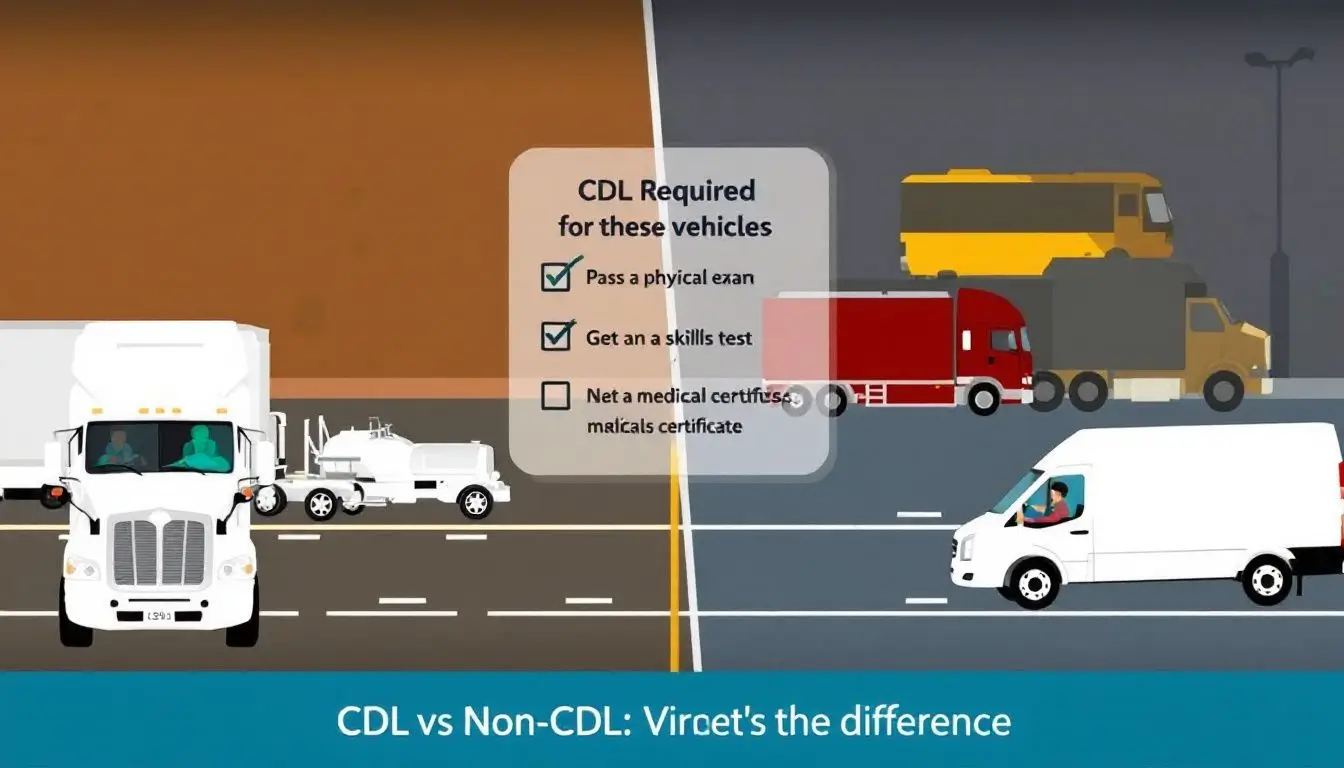
There are several common misconceptions about Non CDL Class C Licenses that need to be addressed. Many believe this license limits you to driving only certain types of vehicles. In reality, it allows you to drive a variety of vehicles, including vans and 2-axle trucks.
Another myth is that adults of any age can obtain a Non CDL Class C License, but specific age and medical requirements must be met. This ensures only qualified individuals are granted the license.
Lastly, some believe a Non CDL Class C License has no restrictions. However, limitations on towing capacities and specific passenger rules apply. Despite these restrictions, the license offers many benefits and is suitable for a wide range of personal and small business uses.
Summary
In summary, a Non CDL Class C License offers a versatile and accessible option for drivers who need to operate larger vehicles without the extensive requirements of a commercial driver’s license. It provides a range of driving privileges suitable for personal and small business use, while also offering the potential for additional endorsements. Understanding the eligibility requirements, the process of obtaining the license, and the common misconceptions can help you make an informed decision about whether this license is right for you.





